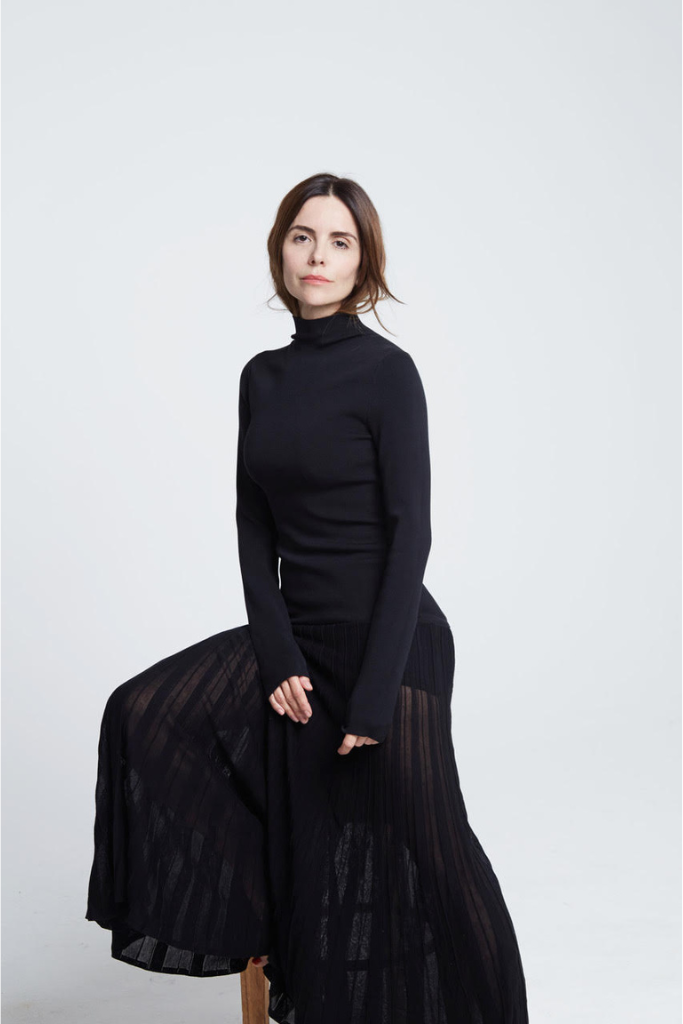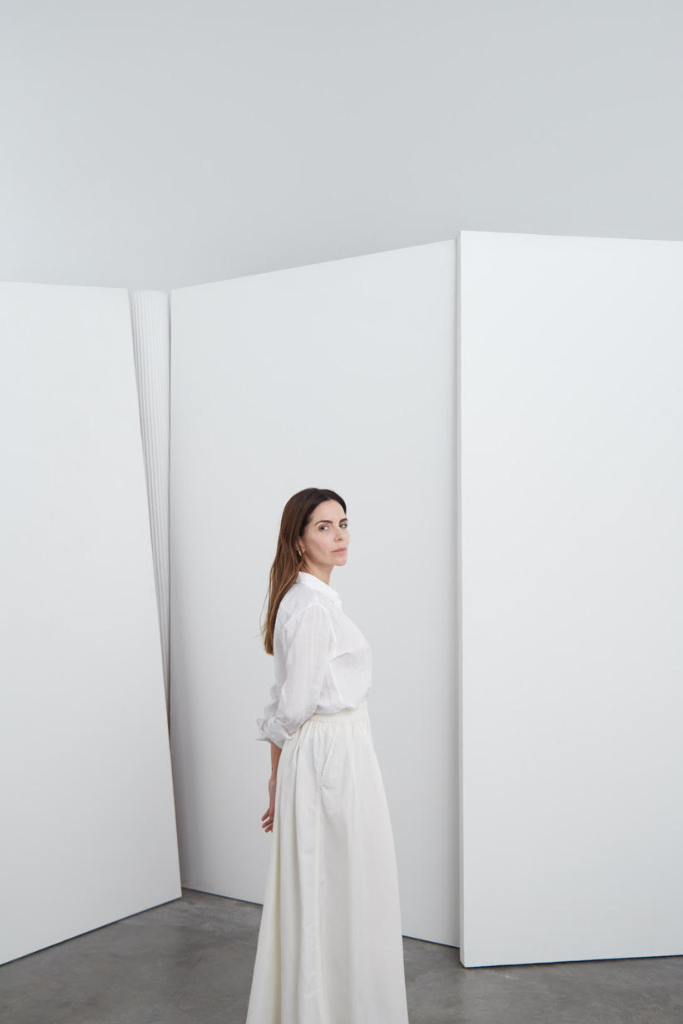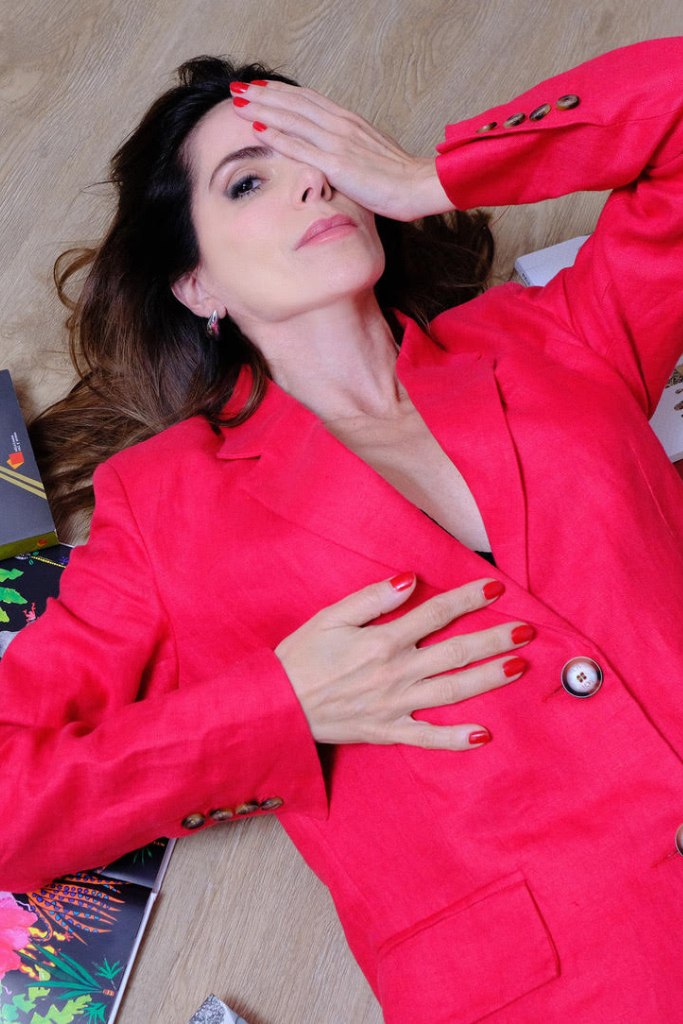Home » About
Paula Parisot (Rio de Janeiro, Brazil) lives and works between Buenos Aires and São Paulo.
A visual artist and writer, her work is fundamentally interdisciplinary, bringing together literature, painting, drawing, performance and video.
She has a degree in Industrial Design (PUC-RJ, Brazil) and a master’s degree in Fine Arts (The New School University, New York, USA).
Her solo exhibitions include Centro Cultural de Lagos (Algarve, Portugal, 2025), Casa de America (Madrid, Spain, 2024) Sociedade Nacional de Belas Artes, (Lisbon, Portugal, 2024), Museo de Arte Contemporáneo del Sur, (Buenos Aires, Argentina, 2023), SESC (São Paulo, Brazil, 2019), Escola de Artes Visuais do Parque Lage (Rio de Janeiro, Brazil, 2014), FIL (Guadalajara, Mexico, 2015). She was part of the Mercosur Biennial (Porto Alegre, Brazil, 2020) and the BienalSur (Buenos Aires, Argentina, 2021).
Together with Jessica Sofia Mitrani, she created A Crucigramista (ARTE1, Brazil, Portugal and Mexico, 2017-2019), a program about art in Latin America. A Crucigramista took part in DOCLisboa (2018) and is currently broadcast on Mexican TV, presented by the Museo Universitario del Chopo.
Parisot is the author of A dama da solidão (Cia. das Letras, 2007, Cal y Arena, 2008 and Dalkey Archive Press 2010), which was a finalist for the Jabuti Prize; Gonzos e Parafusos (Leya, 2010,Cal y Arena, 2011), Partir (Tordesillas 2013, Cal y Arena, 2013) and Muyé Rengué (Editorial Guadal, El gato hojalata, 2024). Parisot has worked internationally to promote contemporary Brazilian literature, organizing anthologies such as La invención de la realidad (Cal y Arena, Mexico, 2015).





Paula Parisot’s work — which spans literature, performance, drawing, and painting — reflects not only her multifaceted talent, but also her unique perspective as a woman in the arts.
Marie Claire, Argentina
Between literature, performance, drawing, video and painting, contemporary Brazilian artist Paula Parisot has been building a solid trajectory from her hometown, Rio de Janeiro, and her city of choice, Buenos Aires. With an eminently eclectic approach, mixing and experimenting with different media, techniques, shapes and colours, perhaps her beginnings in writing can still be highlighted by a special attention to the importance of narratives and the multiplicity of expressions in the world.
Umbigo Magazine, Portugal
Original and inventive, Paula Parisot has found a new way to present her books by adding performative elements. In this way she is at the forefront of opening new possibilities for writers, and artists in general. To find different ways of expression, she boldly crossed the borders between the art of writing and the art of performance.
Marina Abramovic, artist
The installation The Young Lady Finally Understood There Are No Guarantees and No Free Lunch subtly alludes to time. Feelings sway endlessly between doing, undoing, and redoing. Like a Penelope, whose only reason, in her dreams, is to act. The sorrows and pleasures of the passing of time, of a woman’s life cycle, of maturity... Reality and dream, matter and spirit, conscious and unconscious. What it was, what it was not, and beyond that, once again in dreams, what it could have been. Like long heads of hair, each panel shows different emotional states that, through mandalas, are open to the viewer’s interpretation. Colorful, intricate, and always beautiful, they represent Parisot’s aesthetic world.
María Jose Herrera, art historian and curator
Paula Parisot transforms the literary experience into a metaphoric ball of strings that unrolls to weave visual works across various media. (...) We are faced with a body of work that is expressed as much in literature as art, without being confined exclusively or identitarily in either the one or the other.
Daniela Mattos, artist, curator and researcher
The matter of our artist composes and disintegrates, saturates and fades, rises but tends toward the ground. It is precisely from that fissure, from that existential contradiction, that Paula Parisot offers us clues about the world we inhabit.
Theo Monteiro, curator
If contemporary artistic production is marked by a radical and frequent interdisciplinarity, the work of artist Paula Parisot is not only firm evidence of this, but also a case that challenges the many possibilities of crossing distinct linguistic fields.
Victor Gorgulho, curator
Perhaps the true condition of the trip lies in the lack of mediations or interpreters that point out predetermined routes of reading or precede the readings. After all, as pointed out by Partir by Paula Parisot, the gesture of reading still holds within it the awe of discovery. Beyond any doubt, Paula Parisot, is a writer who knows what road she is seeking.”
O Globo, Brazil
Partir, by Paula Parisot, is a road novel that breaks all the canons of the genre and constitutes a sort of anti-Odyssey — as the Homeric poem´s many firsts include its being the fountainhead of road literature.
El Mercurio, Chile
If A dama da solidão and Gonzos e Parafusos — in which, by the way, Paula Parisot performed a remarkable piece in São Paulo lasting seven days and six nights — announced a talented writer, Partir establishes her as one of our great storytellers.
Deonísio da Silva, writer, professor and literary critic
2025 © Todos os direitos reservados.